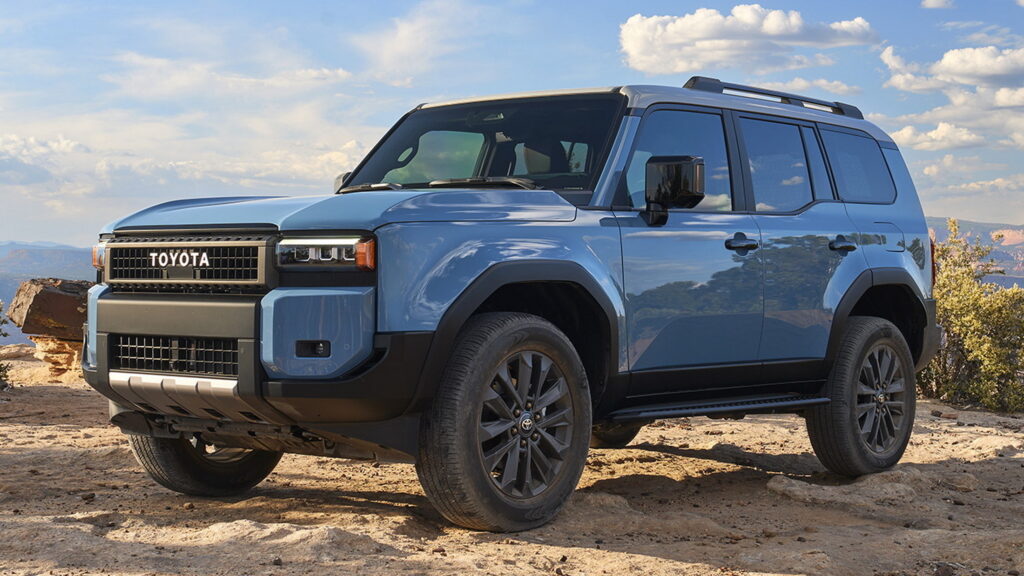The latest generation of the Toyota Land Cruiser features old-school looks, but is headed towards a distinctly new-school future. With tightening emissions regulations around the world, the SUV’s engineers are still in the process of deciding how to keep it relevant until the 2030s.
Toyota has gotten off to a strong start on that mission, equipping the new Land Cruiser with its i-Force Max hybrid powertrain. That combines a turbocharged 2.4-liter four-cylinder engine with an eight-speed automatic transmission that has an integrated electric motor connected to a 1.87 kWh battery to deliver a combined 326 hp (243 kW / 331 PS) and 465 lb-ft (630 Nm) of torque.
But that won’t be enough to keep the Land Cruiser compliant in every market Toyota wants to sell it in. Autonews reports that to do that, the automaker is looking at plug-in hybrid, hydrogen, and all-electric drivetrains for the model.
Read: 2024 Toyota Land Cruiser Returns To America With Hybrid Power

The SUV’s engineers have the flexibility not to commit to one solution yet because the Land Cruiser is based on the TNGA-F platform, which was designed to accommodate new energy drivetrains, as well as internal combustion engines.
However, the platform will still have to be tweaked for a new powertrain and just because it can accommodate them, doesn’t mean there aren’t compromises to be made for each option, according to Keita Moritsu, the Land Cruiser’s chief engineer.
“Each has difficult points and merit points,” Moritsu said of the new energy option. “So we need to think about how to approach under the multi-pathway.”
While the electric option has the benefit of generating zero local emissions, battery technology means that it srange might suffer in hot or cold climes. Since the Land Cruiser is intended to act as a lifeline for even the most remote locations, that might not be ideal.
Although a plug-in hybrid might solve some of those range concerns, it still has an engine, which means that it generates local emissions, and could contribute to Toyota’s reputation as being resistant to fully electric vehicles.
A hydrogen fuel cell system would be very good for long range driving, but would require a lot of bulky equipment that would eat into its passenger volume. In addition, the lack of refueling options is a challenge, too.
Moritsu said that the automaker hasn’t made a final decision yet, but the company is closely examining the costs and benefits of each option to see which one it should go for.




